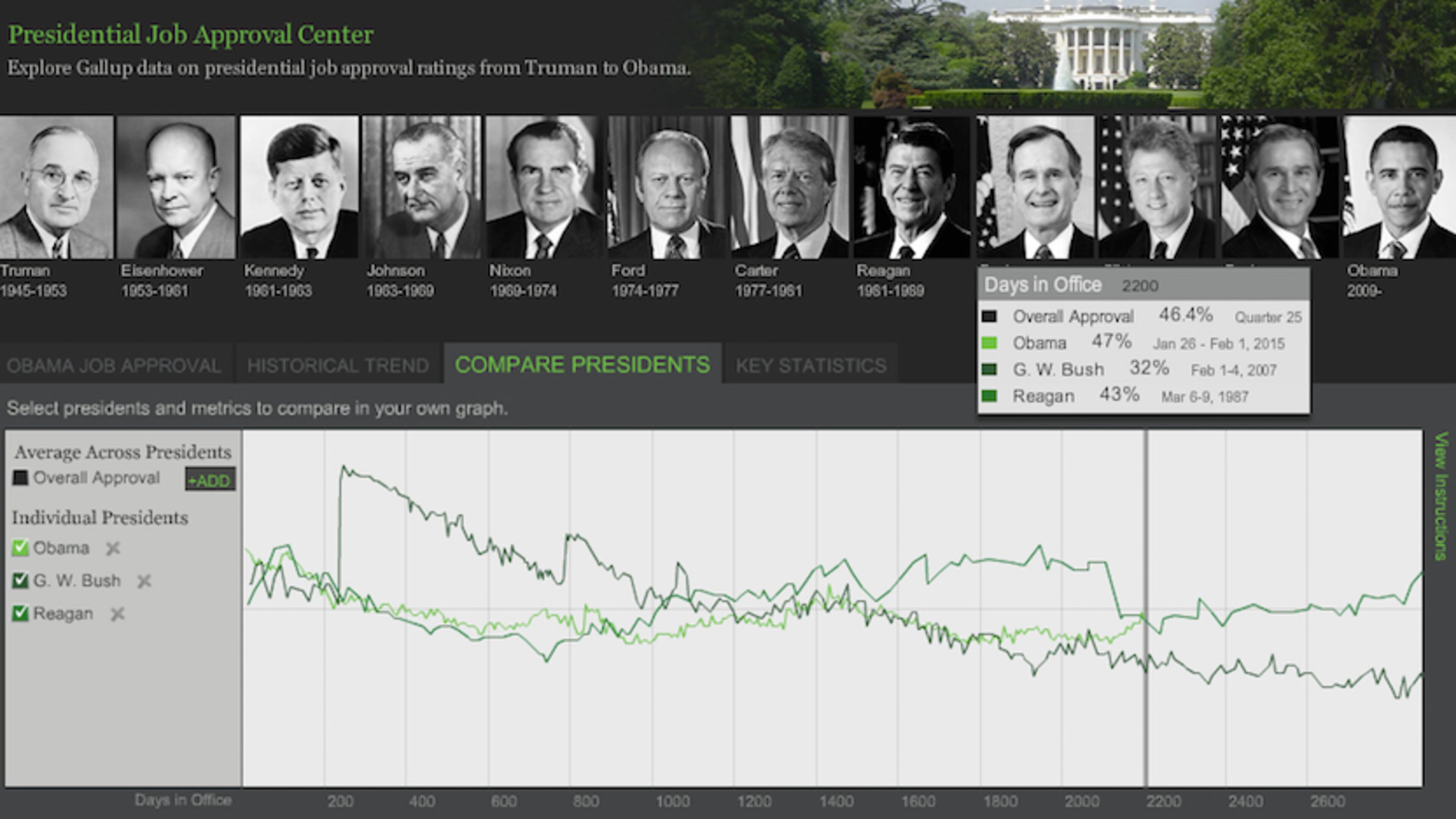What's behind Obama's rising poll support?

As the above graphic illustrates, President Obama last week had a job approval rating of 47 percent, as measured by Gallup. At an identical point in his presidency, George W. Bush had an approval rating of 32 percent. Ronald Reagan's job approval rating at this point was 43 percent. (The Gipper's approval had taken a hard hit in the wake of the Iran-Contra scandal in late 1986 and early 1987, and never really recovered until he was leaving office.)
Obama's numbers are undoubtedly a reflection of better economic times. Gallup's Economic Confidence Index, for example, rose by eight points in January, and finished in positive territory for the first time in seven years. A new Fox poll reports that 53 percent say the economy is improving, with 36 percent saying it's getting worse.
But Obama is also probably benefiting from the contrast with Congress, which continues to draw poor reviews. According to the Real Clear Politics composite, the job-approval rating for Congress remains at 16.5 percent, with 71.5 percent disapproval. That may prove crucial in coming confrontations between Obama and the GOP Congress.


